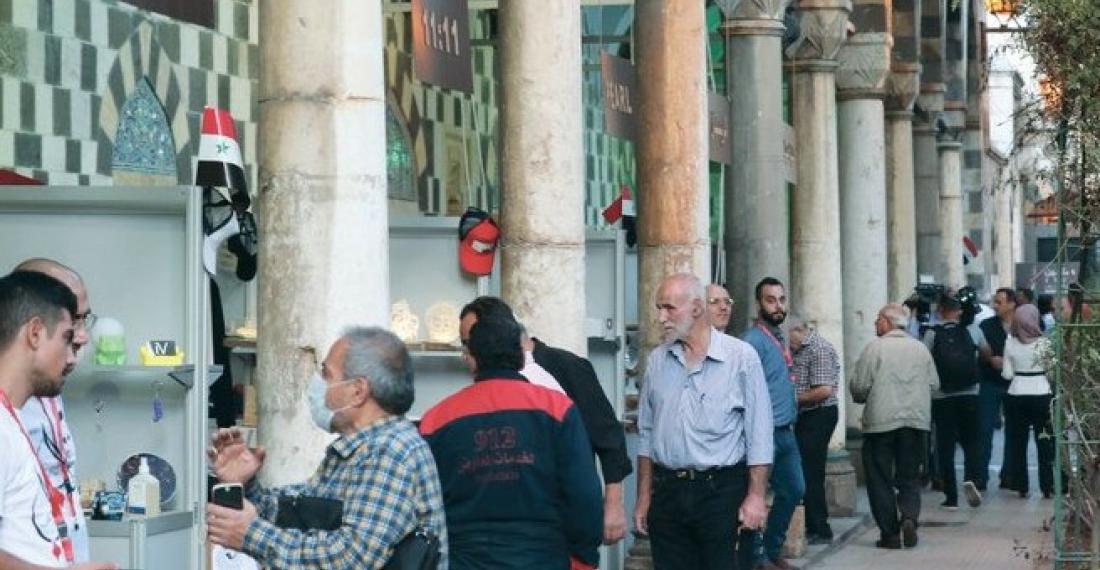In Damascus, soap makers are displaying their work at a trade fair designed to revive Syria’s arts and crafts business.
More than 130 merchants took part in the state-sponsored fair in Damascus for small businesses from Aleppo in northern Syria.
Aleppo was an important city for ancient crafts and constituted an economic hub in Syria’s pre-war era. The old bazaar in the city is a UNESCO World Heritage Site and was once home to many stalls for similar crafts.
In the last 10 years, the city saw some of the heaviest battles. A gradual regime-led restoration program has revived parts of Aleppo’s bazaar but the scars of war remain. The slow economic recovery and sanctions further complicate the situation for the local merchants.
One merchant said they were looking for an alternative to foreign markets after exports stopped in the midst of sanctions. They are hoping to sign local contracts to sell their products.
Many of the merchants inherited these crafts from older generations stating their responsibility to keep them alive.
Photo: Visitors tour a trade fair dedicated to war-hit businesses from Aleppo looking to make a revival, in the Syrian capital Damascus’ Tekkiyeh Sulimaniyeh complex. (AFP)
Source: Commonspace.eu with agencies.






